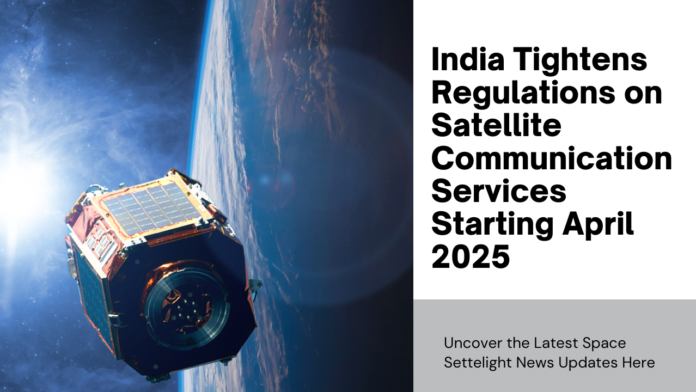New Delhi, July 10, 2024: The Ministry of Information and Broadcasting (MIB) has issued an advisory announcing stringent regulations for non-Indian satellite operators providing space-based communication services in India. Effective from March 2025, only authorized satellites and satellite constellations will be permitted to offer such services in the country.
According to the advisory released today, non-Indian satellite operators must obtain “fresh authorisation” from the Indian National Space Promotion and Authorization Centre (IN-SPACe) before April 1, 2025, to continue provisioning their capacity for space-based communication and broadcast services in India. The directive emphasizes that only IN-SPACe authorized non-Indian satellites in Geosynchronous Orbit (GSO) or Non-Geosynchronous Orbit (NGSO) constellations will be allowed to operate for these purposes.
Existing agreements for capacity provisioning from non-Indian satellite operators will be allowed to continue until March 31, 2025, as per the advisory.
Furthermore, the ministry has mandated that satellite television broadcasters must also seek authorization from IN-SPACe before utilizing non-Indian satellites starting from April 1 next year. This move aligns with the guidelines outlined in the Indian Space Policy of 2023, which aims to integrate the private sector into India’s burgeoning space industry.
All applications for authorization must be submitted online through the IN-SPACe website, facilitated by an Indian entity such as an Indian subsidiary, joint venture, collaboration, or authorized dealer/representative of the non-Indian satellite operator in India.
This regulatory tightening comes on the heels of the Indian Space Policy 2023, which seeks to reform and bolster the participation of private entities in the Indian space sector. The policy aims to streamline the process of authorizing and regulating space activities within the country, including satellite communication services.
Notably, IN-SPACe has been actively considering applications from major global players such as Elon Musk-led Starlink and Amazon-owned Project Kuiper for landing rights authorization in India. Meanwhile, Indian companies like Bharti Enterprises-backed Eutelsat OneWeb and Reliance Jio’s joint venture, Orbit Connect India, have already secured global mobile personal communication by satellite services (GMPCS) licenses from the government.
The intensifying competition within India’s satellite communication (satcom) industry underscores the strategic importance of securing early market entry. Satcom services hold significant promise for delivering high-speed internet connectivity to remote areas of India, although concerns persist regarding the cost implications for end-users.
With these latest regulations, India aims to create a structured framework that encourages innovation, competition, and responsible growth in the satellite communication sector while ensuring compliance with national security and regulatory standards.




